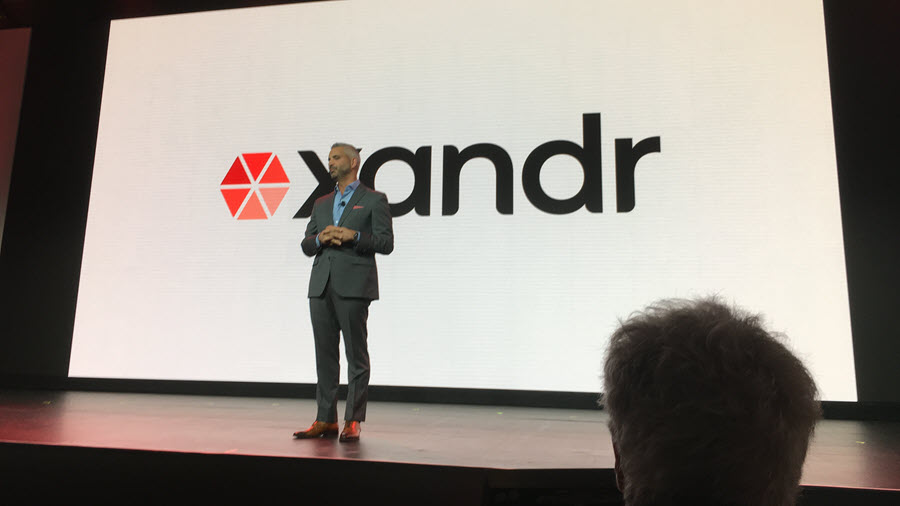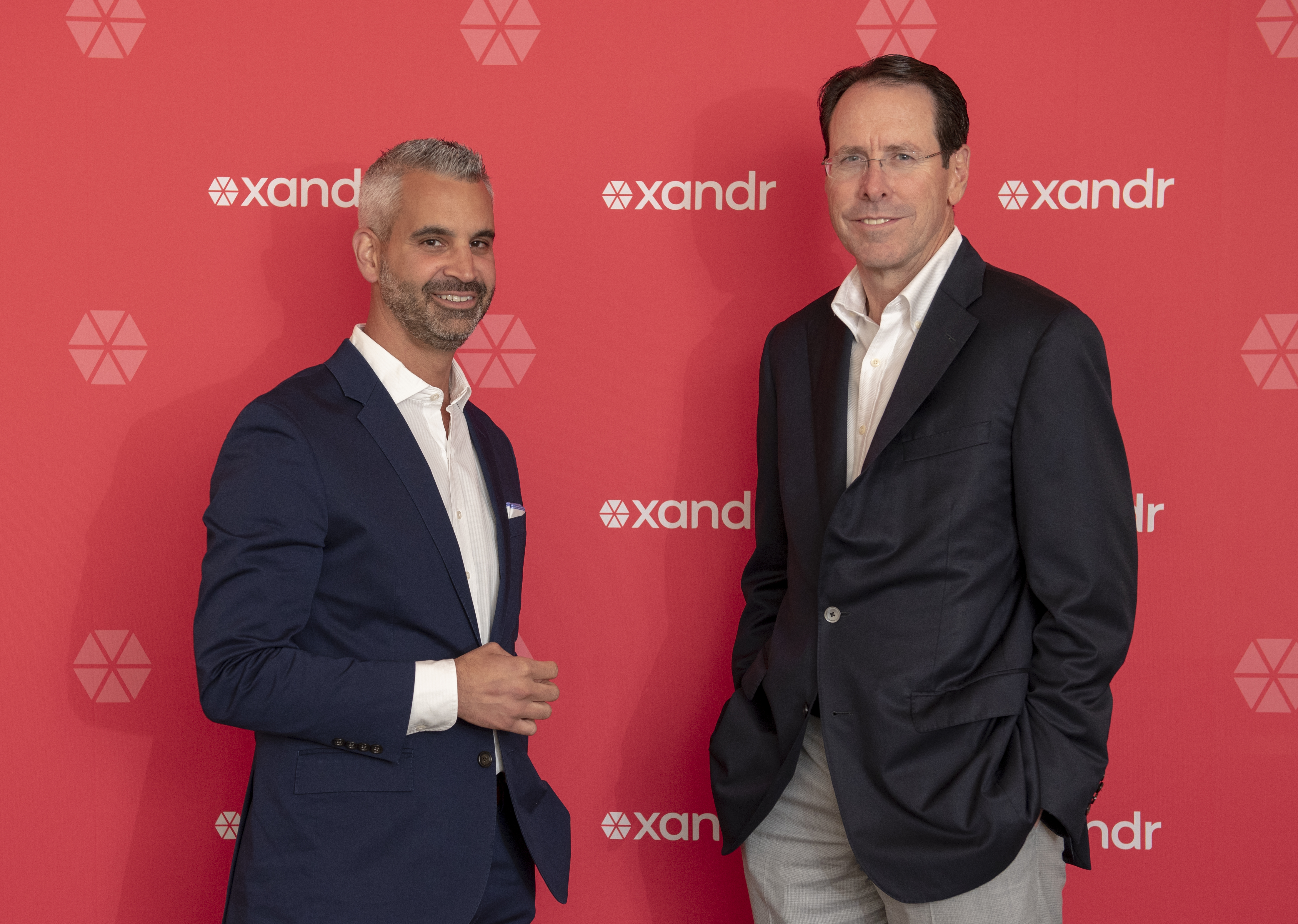AT&T Rings Bell on Xandr, New Name for Ad Business

The smarter way to stay on top of broadcasting and cable industry. Sign up below
You are now subscribed
Your newsletter sign-up was successful
Launching what it calls a new kind of advertising company, AT&T announced that it will call its ad business Xandr, a name that recalls the company's founder with a tech twist.
The company, which aims to build a one-stop marketplace for advanced advertising, said it reached agreements to sell national addressable TV advertising inventory for Altice USA and Frontier Communications. Xandr will also collaborate with a4, Altice USA’s advanced advertising business to help expand a4’s addressable digital advertising capabilities.
AT&T unveiled Xandr at a Relevance Conference held by AT&T in Santa Barbara aimed at discussing ways to stop people from hating advertising. The conference was attended by top people in the agency business, clients and media companies.
Since acquiring Time Warner, AT&T CEO Randall Stephenson has been billing AT&T as a new kind of media company, with content, distribution and advertising units, AT&T.net and the recently acquired AppNexus, the digital at platform that will be building a platform for TV ad sales.

“Xandr is a name that draws inspiration from AT&T’s rich history, including its founder Alexander Graham Bell, while imagining how to innovate and solve new challenges for the future of advertising,” said Xandr CEO Brian Lesser. “Our purpose is to Make Advertising Matter and to connect people with the brands and content they care about.”
Lesser said that Xandr was in a unique position to create more relevant and engaging forms of advertising for consumers, media companies and advertisers because it controls content, distribution, data and technology.
It will be rolling out an ad format that enables a viewer to stop content and interact with an integrated ad by speaking into a voice remote or Alexa-type speaker. Without all four components attempts at creating new advertising formats are likely to fail .
The smarter way to stay on top of broadcasting and cable industry. Sign up below
Lesser noted that consumers used to accept a trade-off that they would get content for free on TV in exchange for having to watch a few ads. That compact has been disrupted by VCRs, DVRs and now streaming services like Netflix.
“We need advertising to pay for the content,” Lesser said. “Subscriptions can’t possibly pay for the content that’s being developed now.”

At the conference Xandr released the findings of two surveys as part of its Xandr Relevancy Report.
A survey of consumer found that 66% of consumers wish advertisement were more relevant to their interests and lifestyle, while 57% said ads were not relevant to them. Despite that 82% said they understand that ads need to exist.
The survey found that 64% of those surveyed believe advertiser enables independent voices to be heard on the internet and 70% like when ad go beyond just selling a product.
Of the ads they’ve seen in their lifetime, consumers said 22% had a positive impact on them personally.
Xandr also surveyed people in the industry and found that 65% of agencies and marketers believe the current fragmented media landscape requires a new marketing structure that places more focus on the audience than the content. Only 19% of agencies and marketers said they were extremely satisfied with the implementation and execution of their media strategies.
The survey found that 38% of marketers said their company was ahead of the curve versus 62% who said they were either followers, hesitant or laggards.
The industry people surveyed thought technology could be a solution to the problems of advertising, with 76% of agencies and marketers saying they believe that media providers/platforms that offer advanced targeting techniques, delivering the right ad to the right consumer, are key in creating a better user ad experience.
The survey found that 71% of agencies and marketers believe of agencies and marketers believe that using advanced targeting techniques would improve advertising return on advertising spending and return on investment.
56% of agencies and marketers believe more advanced targeting solutions will drive optimal campaign delivery and 53% said consumers are okay with companies using their digital footprint in exchange for services.
Jon has been business editor of Broadcasting+Cable since 2010. He focuses on revenue-generating activities, including advertising and distribution, as well as executive intrigue and merger and acquisition activity. Just about any story is fair game, if a dollar sign can make its way into the article. Before B+C, Jon covered the industry for TVWeek, Cable World, Electronic Media, Advertising Age and The New York Post. A native New Yorker, Jon is hiding in plain sight in the suburbs of Chicago.

